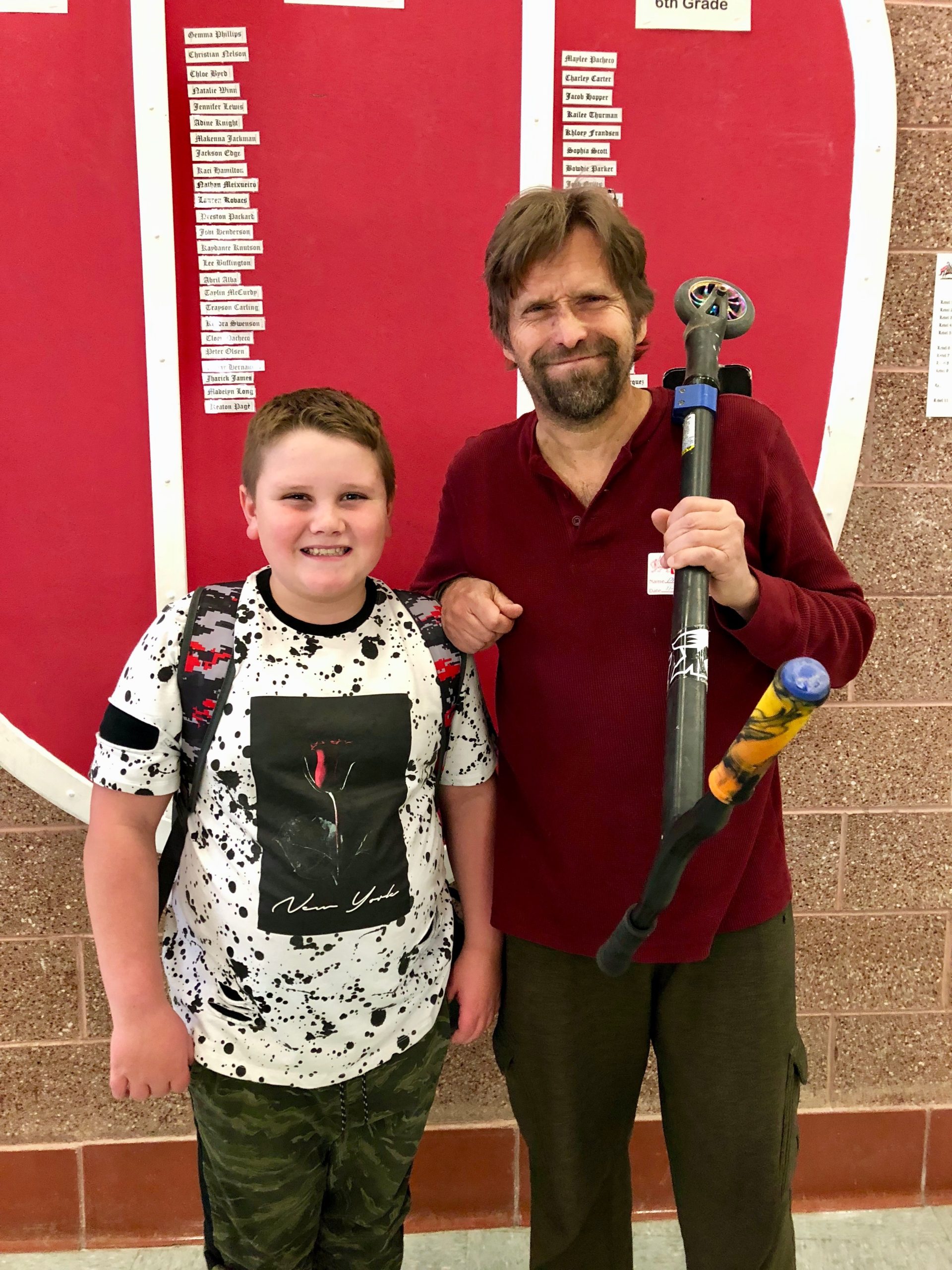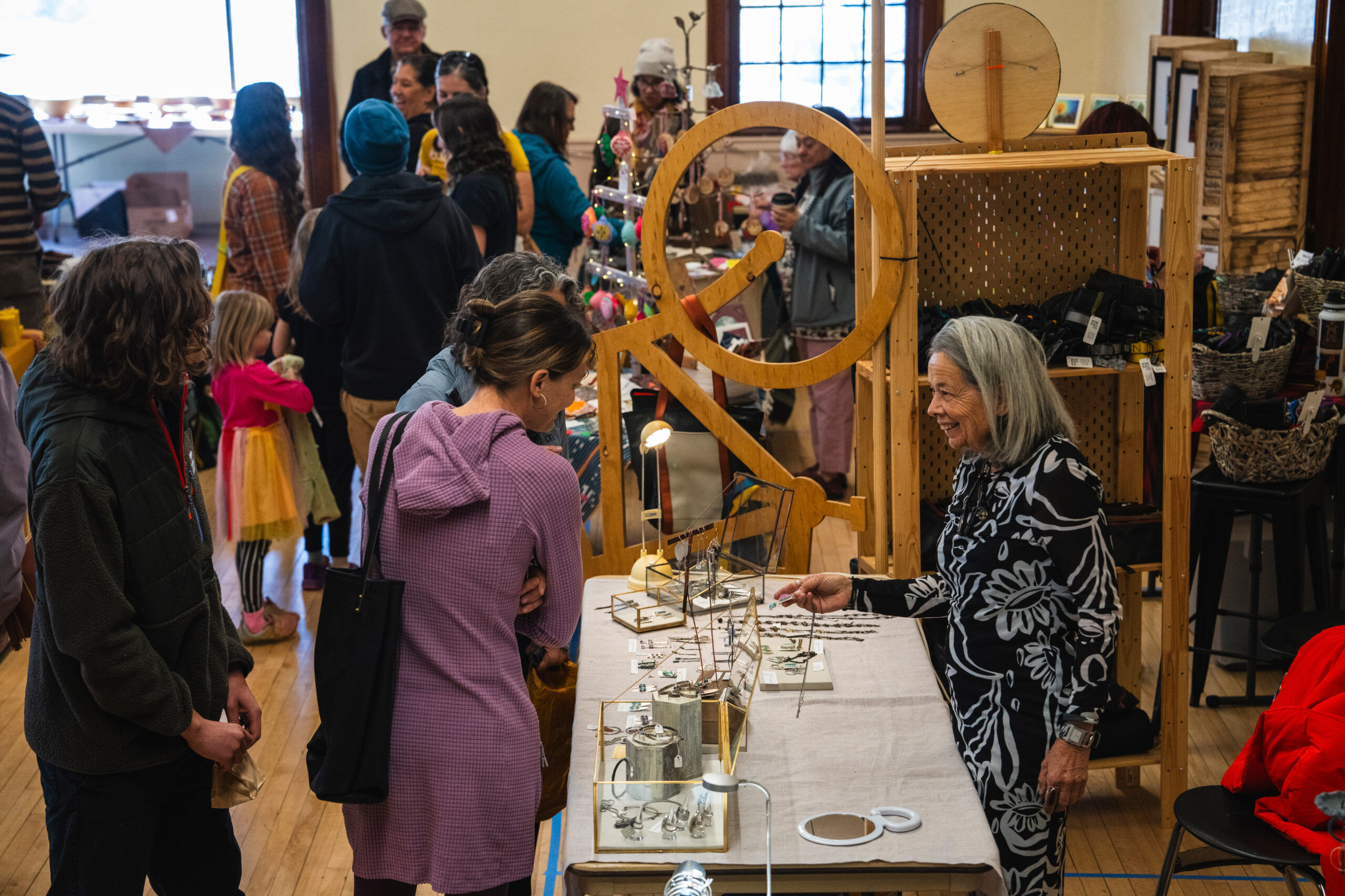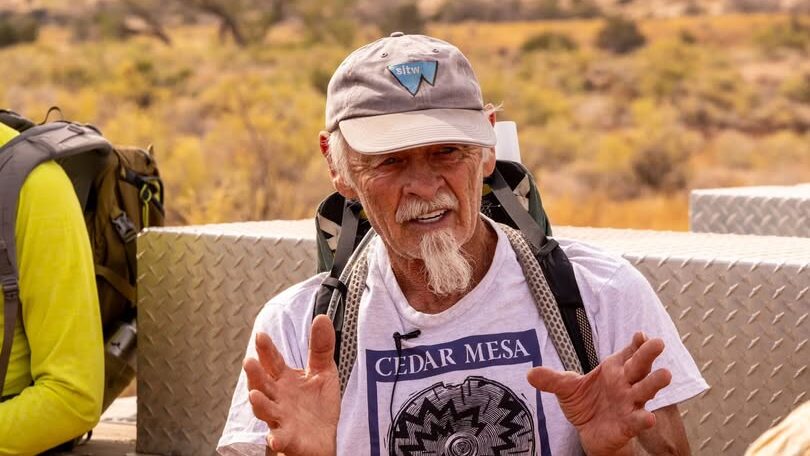Some information may be outdated.
The Grand Area Mentoring program helps local kids develop confidence and social skills and succeed at school by pairing them with adult volunteers who commit to spending an hour a week with a student to offer support and guidance. An orientation session for prospective mentors will be held on Jan. 14.
“The mentors are the lifeblood of the program,” said Daniel McNeil, program coordinator for Grand Area Mentoring. “They’re the kindest people I know.”
The organization hosts two orientations each year, one at the start of the school year and one at the start of the calendar year. The two-hour meeting will explain the principles of the program and what is expected of volunteers, with no obligation for attendees to necessarily become mentors.
“It has to be a great fit for everyone involved,” McNeil said, “so we’re very low-pressure. We want people to come and be mentors—if it’s going to fit into their lives.”
New mentors are asked to commit to at least one year of meeting with an elementary school student one-on-one for one hour per week. Meetings take place mostly on the school campus and might involve games, homework help or crafts. Mentor-mentee pairs often team up to play sports or take occasional field trips to places like the pool, the bookstore or the WabiSabi thrift store.
McNeil explained that elementary-school-aged children are usually more open to forming new relationships than middle or high school students. However, program organizers hope that mentors will stay involved with their mentees beyond the one-year minimum.
“The mentor will often kind of matriculate with that student from the elementary school to the middle school and maybe even to the high school,” McNeil said.
He recalled a mentor who was matched with a third grader and then continued mentoring that student all the way through high school.
“He was there as a resource and a champion,” McNeil said of the mentor. “That relationship continues to this day—even after graduation, that mentor has helped that student get connected with some resources up in Salt Lake City, which is just awesome.”
After serving in the program for at least two years, mentors for middle and high school students are free to meet at approved locations off the school campus, such as restaurants, the National Parks or the library. McNeil said that flexibility and a greater range of options is beneficial in itself for teens and pre-teens.
“What we’ve found is that it’s developmentally appropriate for these kids, who actually need to have more freedom and responsibility,” to leave the school campus, he said.
Students can be nominated for the program by teachers, parents, counselors or even the kids themselves.
“Many kids run up to us in the halls at schools asking for mentors,” McNeil said.
Once a student has been recommended, program coordinators talk with the child and their parents to see if they are ready to fully participate.
“It has to be totally voluntary—this is never something that’s forced on a student,” McNeil said.
In the 2018-2019 school year, 92 students participated in the program and McNeil said there are still over a dozen students on a waiting list. Right now, there aren’t enough mentors to fill the need.
“Hopefully we’ll find some really kind Moabites to join our team,” McNeil said.
Grand Area Mentoring reports show that students in the mentoring program attend school more regularly, achieve better grades and have better social interactions than they did before starting the program.
“It makes an impact that you can’t even imagine,” said Karen Schlom, who has volunteered as a mentor since 2015.
She currently mentors three children at Helen M. Knight Elementary School and has mentored two other children in the past.
“I saw such immense growth in that time period,” she said of her previous mentees, whom she was paired with for four years. “I felt so good about what they had gained. I thought, ‘You know what? They’re just going to be more prepared for what’s ahead of them in life.’”
Schlom, now retired from her job as a supervisory ranger for the National Park Service, said she gained insight from supervising adults in her career.
“Adults are just big kids,” she said. “As a supervisor, I found it important to try to bring the best out in each employee so that they could maximize their full potential. And it’s the same thing with kids. It’s helping them discover who they are and what their strengths are, and enabling them to maximize their strengths, so they can become the best person possible.”
Some students in the program have spoken for themselves on the value of having a mentor. Grand Area Mentoring’s annual report from the 2018-2019 school year includes quotes from program participants. “Mentoring is like having a special person in your life, someone you really love in your life…It helps you learn how to be nice and solve problems,” said a second-grade student in the program.
The program offers ongoing advanced training and support for mentors. Past workshops have covered topics like communication, cultural diversity and awareness and dealing with children who have experienced trauma. Megan McGee, the mentor coordinator, checks in with volunteers regularly, helps troubleshoot problems and secures resources.
“She’s there every step of the way to help our volunteers and our mentees,” McNeil said of McGee.
McNeil asks that those interested in attending Tuesday’s orientation call him at 435-260-9646 or email him at grandareamentoring@gmail.com to RSVP.
For mentors beginning the program, Schlom had this advice: “Prepare yourself for an outstanding, challenging experience that will enrich your life.”
Mentoring program to hold volunteer training
“Mentoring is like having a special person in your life, someone you really love…It helps you learn how to be nice and solve problems.”
– A second-grade student enrolled in the Grand Area Mentoring program
When: Tuesday, Jan. 14, from 5 to 7 p.m.
Where: Helen M. Knight Elementary School, 505 N. Mivida Drive
Cost: free
Call Dan McNeil at 435-260-9646 or email him at grandareamentoring@gmail.com
Appreciate the coverage? Help keep local news alive.
Chip in to support the Moab Sun News.





